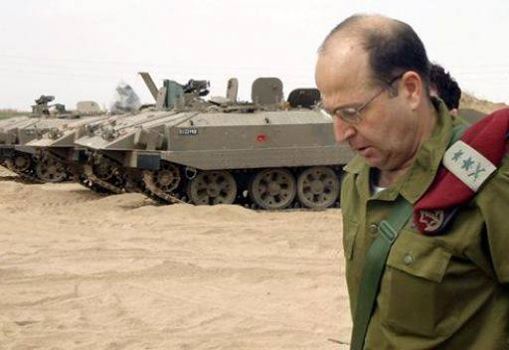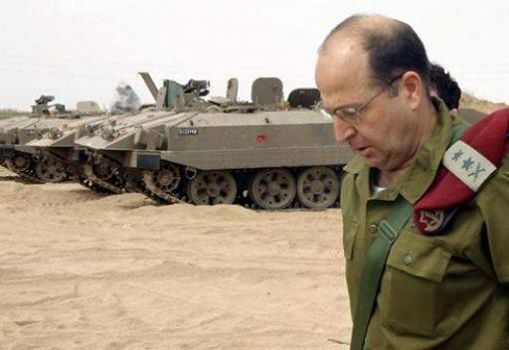
The Zionist Defense Minister Moshe Yaalon discussed his concerns about the nuclear deal between the Islamic Republic of Iran and the P5+1 group, suggesting that common interests with Arab countries can be more important to his country than “accords written by lawyers.
“You have the Sunni Arab camp, and Israel shares with the [Sunnis] common interests. Iran is a common enemy. If we share common enemies along with other common interests, there is room for cooperation,” he said in an interview last week with The Washington Post.
Using terms he wanted to share with what he called ‘moderate Arabs’, Yaalon reiterated the claims of “exporting revolution” and taking over Yemen by proxy, saying: “This rogue regime in Iran is ready to sacrifice a lot in order to export the revolution and to gain hegemony in the region by being active in Afghanistan and in Iraq.”
“While we witnessed the negotiations about the number of centrifuges in the deal, the Iranians took over Yemen by proxy — by the Houthis — and they tried to open a new front of terror against us in the Golan Heights,” he added.
The Zionist official not only accused Iran of all that, but also he tried to raise the concerns of Saudi Arabia, stating that Bahrain, Saudi Arabia and Dhahran are next on the Iranian list.
“Bahrain, Saudi Arabia and Dhahran, the area of the oil resources of Saudi Arabia, which is dominated by a Shia population,” are next on their [Iranians] list,” he said.
“Iran is active over there undermining these regimes. They already control the Hormuz Straits, and now they are trying to control the straits of Bab-el-Mandeb in the Red Sea. The Iranian idea is to dominate the region,” he further continued.
During his interview, Yaalon stressed that Iran represents a bigger problem than the so-called ‘Islamic State of Iraq and the Levant’ (ISIL) takfiri group, noting that “if they [the Iranians] were able, the West Bank might be exploding.”
“We have three red lines: One is not to allow the delivery of advanced weapons to any terror organization, whether by Iran or by Syria. Second, not to allow delivery of chemical agents or weapons to any terror faction. The third is not to allow any violation of our sovereignty, especially in the Golan Heights. When it happens, we act,” he said.
Regarding the proposed Iran agreement, Yaalon stated that the Zionist authorities consider it “a very bad one,” insisting on the inspections of Iran’s military facilities.
“It is not just Parchin. They say very clearly, “We’re not going to allow inspections of military facilities.” Parchin is a military facility, and we have hard evidence that it was used for weaponization after 2003,” the Zionist Defense Minister said.








